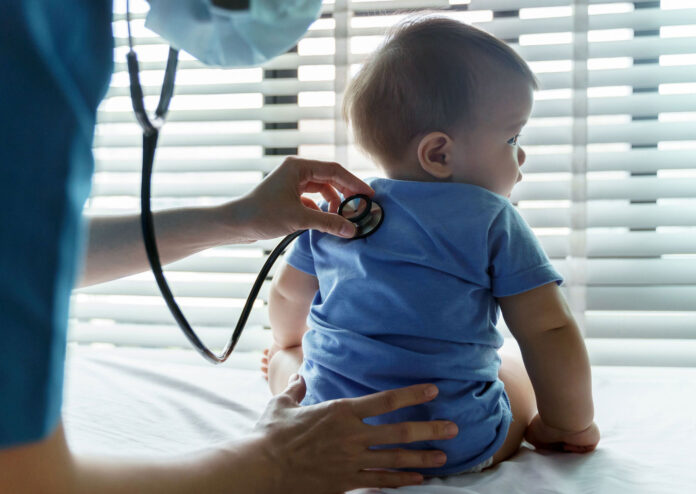
PARENTS are being warned to be on the lookout for symptoms of croup as health authorities report an increase in cases and of young children being hospitalised.
The Department of Public Health Mid West and UL Hospitals Group have had 206 reports of bronchiolitis caused by RSV (respiratory syncytial virus) since the start of October.
RSV is a highly contagious respiratory disease, which generally occurs between October and April, with cases peaking in December.
RSV is mostly mild in adults and older children but can cause croup in very young babies. This may lead to breathing and feeding difficulties and can result in hospitalisation.

- External Walls: Up to €8,000 Grant
- Attic: Up to €1,500 Grant
- Cavity Walls: Up to €1,700 Grant
- Internal Dry Lining: Up to €4,500 Grant
It can also be serious and life-threatening for older adults, individuals with weak immune systems, and children who are premature or have chronic heart and lung disease.
RSV is one of the leading causes of bronchiolitis, which is a common chest infection in babies (under six months) and young children (under two years).
Nationally, there have been twice as many cases of RSV as would normally be seen at this time of year, and more than half of those diagnosed have been hospitalised.
Most cases of bronchiolitis/RSV can be cared for at home, and can clear between two to three weeks without treatment. However, symptoms can worsen quickly, and medics say so it is important to watch symptoms.
The advice is that if children just have a runny nose or slight cough, they should be okay to go to childcare or school but if a child is feeling unwell with more significant symptoms, or combination of symptoms (cough, runny nose and mild fever) then they should be at home until the fever and their symptoms have gone.
Children may have a persistent cough for after infection for a few weeks so once other symptoms have gone, they can go to school or creche.
Good ventilation of shared spaces, good hand hygiene and cleaning of surfaces, and good cough etiquette (coughing into tissue or elbow rather than on hands) also help in preventing spread.
The Paediatric Emergency Department at University Hospital Limerick (UHL) is currently managing much higher attendances of infants with respiratory illnesses than ever before.

